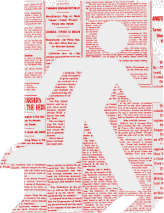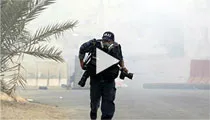The press freedom climate continued its sharp decline under President Rafael Correa. Courts upheld defamation convictions against executives of the daily El Universo and authors of the book Big Brother in connection with their critical coverage of the Correa administration. The president, who initiated the complaints, later pardoned the journalists, but the rulings cast a chill on in-depth reporting. Correa granted political asylum to WikiLeaks founder Julian Assange in a move that underlined his antipathy toward the United States and sought to counter his image as an opponent of free expression. U.N. member states made 24 recommendations on freedom of expression at the country’s Universal Periodic Review. The Ecuadoran government rejected three of the recommendations, including one that urged the repeal of laws that criminalize speech. The president also began a sustained attack on the Organization of American States’ special rapporteur for freedom of expression, a move that threatened to gut a vital defender of the regional press. An anti-press attitude was prevalent among all branches of Ecuadoran government. Legislators debated a bill that would allow a media regulatory body to impose arbitrary sanctions on the press and limit free speech. The telecommunications office closed at least 11 broadcasters, more than half of which were critical of the government. And a photographer was killed in direct retaliation for his reporting, the first confirmed journalist murder in Ecuador since 2005.
Ecuador
» Criminal defamation verdicts set a dangerous precedent.
» Correa leads effort to restrict OAS freedom-of-expression work.
The press freedom climate continued its sharp decline under President Rafael Correa. Courts upheld defamation convictions against executives of the daily El Universo and authors of the book Big Brother in connection with their critical coverage of the Correa administration. The president, who initiated the complaints, later pardoned the journalists, but the rulings cast a chill on in-depth reporting. Correa granted political asylum to WikiLeaks founder Julian Assange in a move that underlined his antipathy toward the United States and sought to counter his image as an opponent of free expression. U.N. member states made 24 recommendations on freedom of expression at the country’s Universal Periodic Review. The Ecuadoran government rejected three of the recommendations, including one that urged the repeal of laws that criminalize speech. The president also began a sustained attack on the Organization of American States’ special rapporteur for freedom of expression, a move that threatened to gut a vital defender of the regional press. An anti-press attitude was prevalent among all branches of Ecuadoran government. Legislators debated a bill that would allow a media regulatory body to impose arbitrary sanctions on the press and limit free speech. The telecommunications office closed at least 11 broadcasters, more than half of which were critical of the government. And a photographer was killed in direct retaliation for his reporting, the first confirmed journalist murder in Ecuador since 2005.
Three Ecuadoran journalists were forced to flee their homes due to the threat of imprisonment, CPJ research shows. Two later returned, but one, Emilio Palacio, opinion editor of El Universo, was granted political asylum in the United States. This was the first year that Ecuador appeared on CPJ’s exiled list.

1. Somalia: 7
2. Syria: 6
3. Pakistan: 6
4. Iran: 4
5. Eritrea: 4
6. Ethiopia: 4
7. Ecuador: 3
Photographer Byron Baldeón was killed in retaliation for his reporting, the first work-related journalist murder in the country since 2005 and the second since CPJ began documenting cases in 1992.
2 | Journalists who were threatened after being verbally attacked by Correa on his TV show |
1 | Journalist who temporarily left her TV show after receiving threats related to her reporting |
In February, Ecuador’s highest court upheld three-year sentences and multimillion-dollar fines against three El Universo executives. Correa later pardoned the defendants and lifted the penalties, but his actions had already done lasting damage to free expression in the country.
$40 million
Total fines imposed on El Universo, its executives, and its opinion editor.$2 million
Total fines imposed on journalists Juan Carlos Calderón and Christian Zurita in connection with their book Big Brother. Both journalists were later pardoned.An electoral court fined the magazine Vistazo in connection with an editorial urging voters to reject some questions on a 2011 referendum ballot. The court found the article violated a legal prohibition against “disseminating political or electoral propaganda” in the days leading up to a vote. Electoral law changes that took effect in February further restrict coverage of political campaigns.

